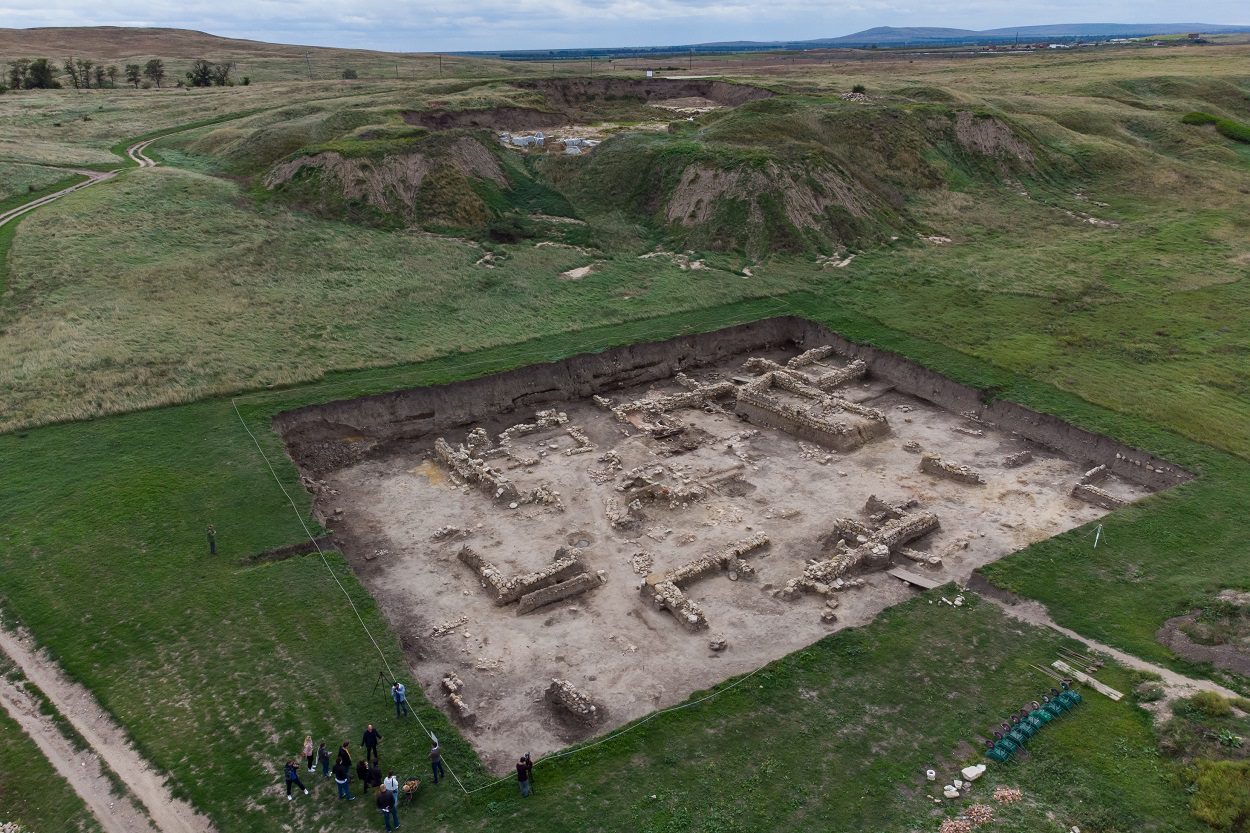Archaeologists from the Phanagoria Archaeological Expedition have uncovered a coin hoard during excavations in Phanagoria along the Taman Peninsula in the Black Sea.
Phanagoria was founded in the middle of the 6th century BC by Greek settlers on the shores of the Taman Gulf. The ancient settlement and necropolis include over 700 mounds and occupies 2223 acres.
The team found a purse between the remains of two burnt dwellings in the city, containing 30 copper staters, a type of Greek coin minted in the Bosporan Kingdom. The researchers suggest that the coins were lost or hidden during attacks on Phanagoria by the Turks or the Huns.
Last year, a similar hoard of 80 coins was found stashed inside an amphora not far from the latest discovery, while previous excavations along the Taman Peninsula have found hoards in Hermonassa and Kitey.

An analysis of the hoards allows archaeologists to evaluate the wealth of the people living along the peninsula, suggesting that the inhabitants had approximately 30-80 coins for their everyday needs. The team estimates that the savings of the combined inhabitants in each city within the region amounted to roughly 1,000 Bosporan coins.
The Bosporan coins are unique in that they were last minted in AD 341, but continued to be used in the region until at least the end of the 6th century. After Phanagoria became a Byzantine dependency, Byzantine gold also circulated in the territory which had a higher value than the Bosporan coins. Nevertheless, unlike copper staters, gold coins were used almost exclusively for large transactions, and only the richest medieval classes could afford them.
The Phanagoria Archaeological Expedition is a project by the Institute of Archaeology of the Russian Academy of Sciences and is being fully sponsored by the Oleg Deripaska’s Volnoe Delo Foundation since 2004.
Part of our mission statement at HeritageDaily is to provide independent, impartial and honest journalism.
With respect of this and the monetary gain from promoting state funded projects by the Russian Academy of Sciences, we support the Ukrainian people in their struggle and have donated to the Ukraine Humanitarian Appeal to help the DEC charities provide for the displaced and refugees.





